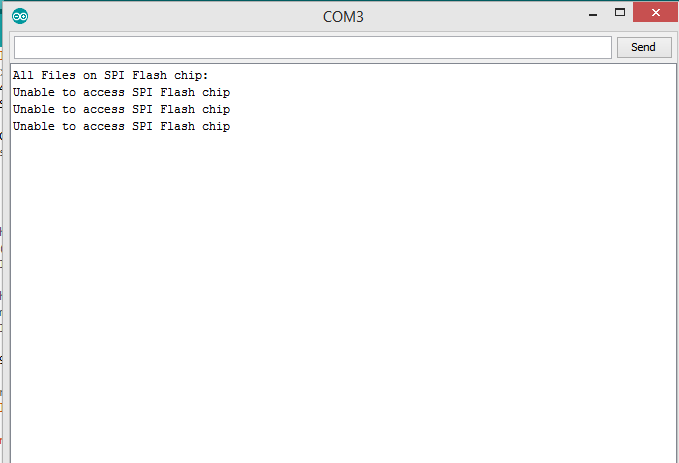Hi @johnnyptpl , to access the serial flash chip on MKRWAN1310 you need to reset the LoRa module since its UART is partially shared with SPI1 lanes. The code to do this (using Paul's library) is
#include <SerialFlash.h>
#include <SPI.h>
const int FlashChipSelect = FLASH_CS; // digital pin for flash chip CS pin
SerialFlashFile file;
const unsigned long testIncrement = 4096;
void setup() {
Serial.begin(9600);
while (!Serial) ;
delay(100);
pinMode(LORA_RESET, OUTPUT);
digitalWrite(LORA_RESET, LOW);
Serial.println("Raw SerialFlash Hardware Test");
SerialFlash.begin(SPI1, FlashChipSelect); // proceed even if begin() fails
....
Hi.
This is Johnny, I'm exploring new MKRWAN 1310 very low power board. Thanks for Arduino for introduction this board.
I'm trying to access SPI FLASH & Battery charging mode, I can see that https://github.com/arduino/ArduinoCore-samd/blob/2ca7f7531d4e4e54068bc584503b9e02e9033f3b/variants/mkrwan1300/variant.h#L220 SPI FLASH is using PIN 32 as CS. But I also really don't know how to activate the Battery charging mode to get battery capacity values.
I tried to access SPI FLASH using
SPI1bus by the support of Marzogh library but I couldn't access. Here is my code.I have also tried PaulStoffregen library but even that didnt work.Here i have attached the code.
Serial Monitor Screenshot:
Requesting help, It will be really supportive if some can provide sample codes for accessing SPI FLASH & activating battery charging mode in MKRWAN 1310